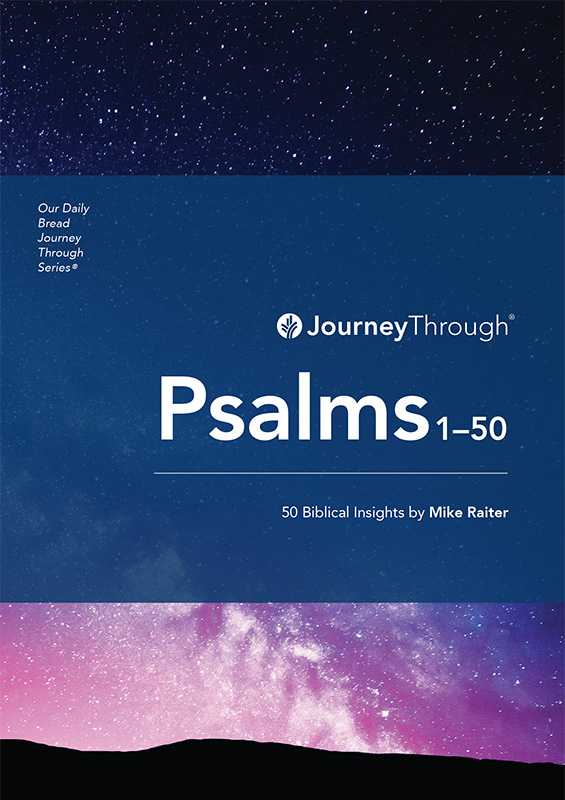Psalms 1 - 50
by Mike Raiter
In the Hebrew Bible, the title of the book we call “Psalms” is “Songs of Praise”, reflecting its key theme of praising God. The book includes songs from seven named sources: King David, who wrote almost half of the psalms (73 or more);3 Asaph and the sons of Korah, who probably led worship in the temple (see 1 Chronicles 6:37–39); and Solomon, Moses, Heman, and Ethan.
There are many different kinds of psalms: of thanksgiving (e.g. Psalm 34); of lament (e.g. Psalm 22), which form one third of the psalms; of trust in God’s goodness (e.g. Psalm 46); of remembrance of how God saved His people (e.g. Psalm 77); wisdom psalms that contrast two ways of living and the consequences of the choices we make (e.g. Psalms 1, 49); and psalms that foreshadow Israel’s king, God’s Son and the Anointed One (e.g. Psalm 2). The psalms have not been randomly arranged. There is a careful structure, and often, one psalm continues the theme of the previous one.
Both the songbook of Israel and a Christian book, Psalms opens our eyes to see Jesus, who was promised in these songs, proclaimed in the Gospels, and is present by His Spirit in the lives of His people.
In Colossians, Paul exhorts Christians to “let the message of Christ dwell among you richly as you teach . . . with all wisdom through psalms, hymns, and songs from the Spirit, singing to God with gratitude in your hearts” (3:16). There are two dimensions to our singing: the vertical—singing to God with gratitude—and the horizontal—singing to one another to build each other up. As we study Psalms 1–50, let us both praise God and proclaim His truths to each other.
Key Verse
Serve the Lord with fear . . . Kiss his son, or he will be angry. -Psalm 2:11–12





